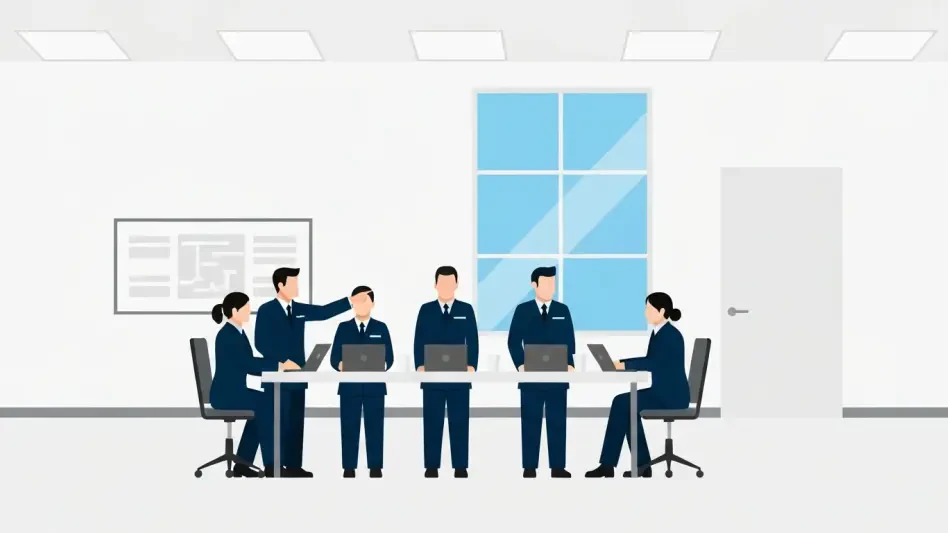Amidst an era where data is the new currency, multinational giants face unprecedented threats from cyber adversaries exploiting vulnerabilities in cloud computing systems. These platforms, integral to modern business operations, can suffer devastating breaches that question the adequacy of current security measures. Two prominent attacks on Coca-Cola and its bottling partner Coca-Cola Europacific Partners (CCEP) exemplify these challenges. As threat actors maneuver through complex digital landscapes, enterprises must reckon with rising risks affecting valuable data repositories.
Examination of Cloud Vulnerabilities
The sophistication involved in recent breaches reveals intricate vulnerabilities within cloud platforms. Attackers, such as the Everest ransomware gang and the Gehenna hacking group, infiltrated the systems of Coca-Cola, exposing 959 employees’ visa, passport details, and salaries. Targeting areas such as Dubai, these cybercriminals exploited cloud’s inherent weaknesses, focusing on insufficient security visibility and logging.
In a separate exploit, CCEP’s Salesforce dashboard fell victim to a massive data exfiltration by Gehenna, with over 23 million records from various years exposed. These cyber threats spotlight the precarious nature of cloud services, where data integrity may be compromised without comprehensive protective measures. Both adversaries utilized avenues like dark web forums to showcase and hawk stolen information, adding another layer of complexity to cloud security challenges.
Navigating Cloud Security Features
Protecting data within cloud environments demands rigorous implementation of encryption and access control mechanisms. Ensuring confidentiality and integrity are paramount, but the Coca-Cola cases indicate lapses that attackers can exploit. Authentication solutions, including multifactor authentication, are crucial in preventing unauthorized access, yet cloud providers often underutilize these protocols.
Effective identity management is vital in bolstering cloud security, reducing exposure to malicious activities. It presents a dual benefit of safeguarding sensitive data while preserving user convenience. Despite robust technology offerings, the recent events highlight persistent vulnerabilities that enterprises must address to secure their cloud frameworks.
Vision for Advancing Cloud Security
As cybersecurity evolves, forward-thinking strategies like zero-trust architectures and AI-driven security measures gain traction. Companies gradually integrate these innovations to shore up defenses against growing cyber threats. Anticipating shifts in threat patterns, incorporating SaaS logs into Security Information and Event Management (SIEM) systems proves crucial, enhancing detection and response capabilities.
These advancements illustrate a clear trend: a need for proactive strategies in combating persistent threats. Employing robust analytics and predictive technologies can potentially preempt breaches and safeguard critical assets. Recent hacks are a stark reminder of the constant vigilance required to protect cloud infrastructures.
Reflections on Cloud Security Efforts
Recent events elucidate sectors utilizing effective cloud security practices, yet they underscore ongoing risks in cloud adoption. Enterprises continually engage resilient frameworks and innovative technologies for safeguarding against data breaches. Critical industries, such as financial services, routinely leverage cloud-based solutions to enhance operational efficiency and ensure data protection.
Unique projects highlight potential cloud security success stories but also demonstrate areas needing improvement. As corporations bolster security strategies, peer insights and real-world applications offer valuable guidance for navigating evolving landscapes.
Learning from Security Failures
The Coca-Cola incidents exemplify limitations rampant within existing cloud security protocols. Companies face formidable challenges involving technical and regulatory barriers, often constrained by complex governance and compliance mandates. These incidents push experts to re-evaluate cybersecurity models, aiming to mitigate vulnerabilities prone to exploitation.
Ongoing research and collaboration remain vital to addressing security gaps, fostering knowledge-sharing and innovation tailored toward robust protective systems. As cloud services expand, addressing the current limitations ensures fortified defenses against emerging threats.
Closing Remarks
These cybersecurity challenges experienced by Coca-Cola and CCEP offer crucial lessons for cloud security moving forward. New technologies and improved systems become paramount in strengthening digital defenses against adept cyber adversaries. These events underscore the urgency for proactive security measures, paving the way for safer cloud integrations across diverse industries. Progression toward sustainable security practices signifies an essential evolution in contemporary cybersecurity landscapes.








